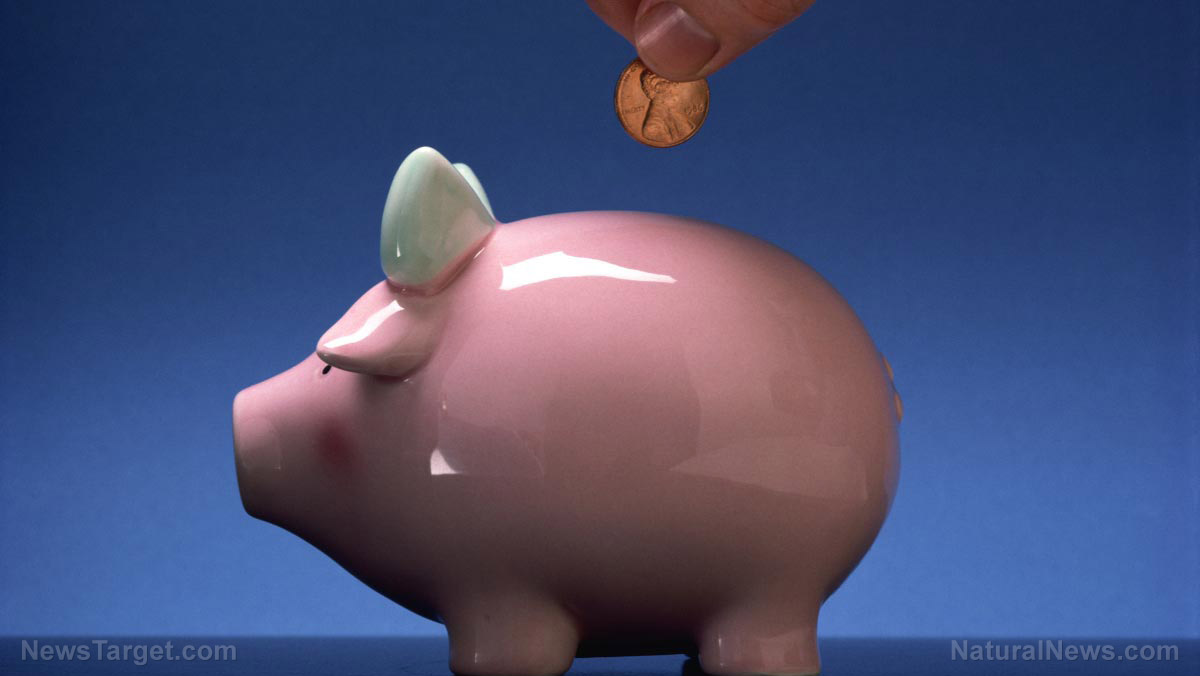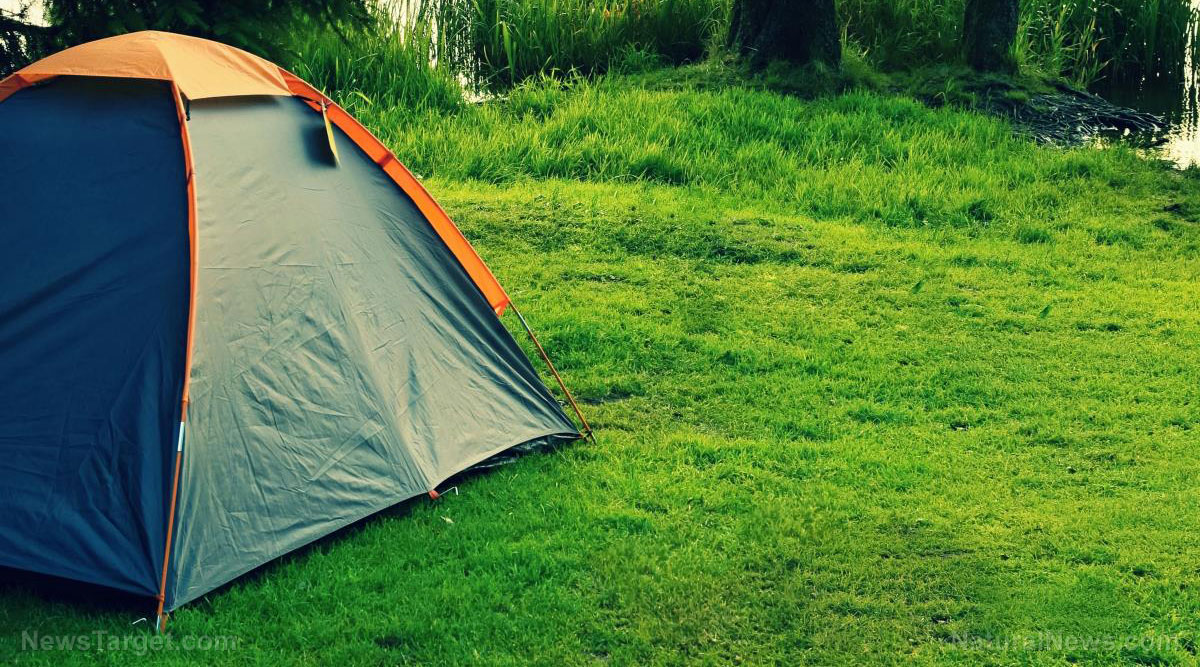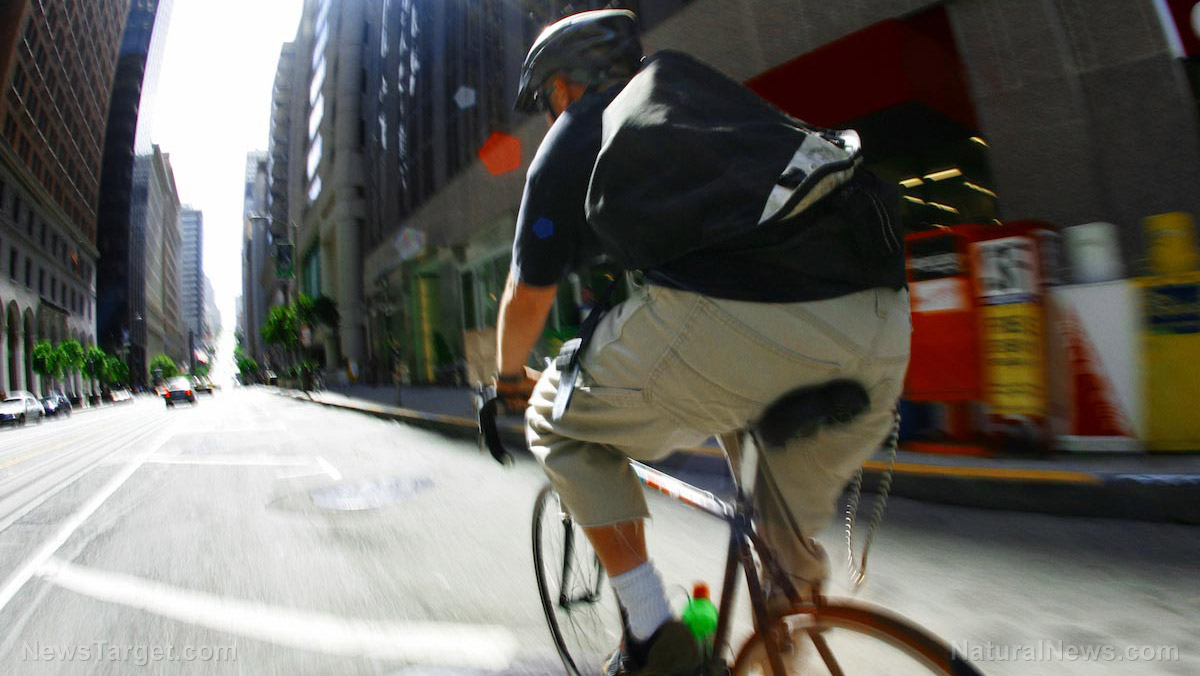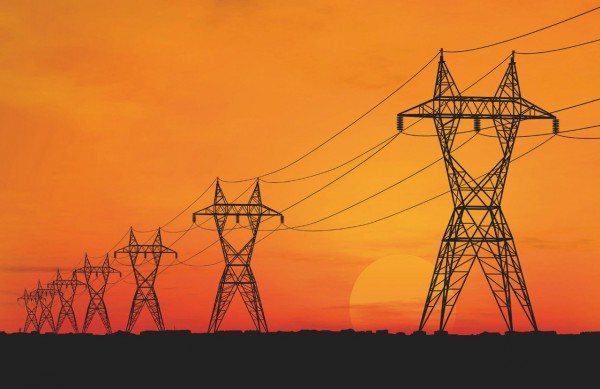 Parler
Parler Gab
Gab
Set aside money for an emergency fund
Emergency preparedness helps you prepare for the unexpected. If you're worried about financial emergencies, you can rest a little easier with an emergency fund. This fund refers to money that you set aside specifically for unexpected expenses like unemployment, expensive medical bills or home repairs. An emergency fund can help you avoid going into debt if you are dealing with a sudden financial setback. If money is already tight in the household, try to set aside money whenever possible so you eventually save enough money to cover at least three to six months of living expenses. To cover all bases, you can also continue to add money to your emergency fund even beyond six months.Don't spend your emergency fund (unless it's for an emergency)
Once you've successfully set aside money for your emergency fund, practice self-discipline and don't spend it unless SHTF and you need the extra cash. This ensures that when things go south, you have money to tide you over until you get your salary. Remember, your emergency fund is for actual emergencies. If you're worried about being tempted to spend your emergency fund, set up a separate bank account for it or keep it secured in a home safe.Draft a debt repayment plan
If you have debt, create a plan so you can pay it off as quickly as you can. Do this by making extra payments every month. Another option is to contribute periodic windfalls, like tax refunds or bonus checks, directly toward debt repayment. Paying off debt helps reduce the amount of interest you pay over time. It also frees up extra cash every month that you can use for savings or other financial preps. Paying off debt also helps relieve the stress of covering unexpected expenses.Get the right insurance coverage for your home
Going with a good insurance company with adequate coverage for your home and car is something worth looking into, especially if you live in an area with natural disasters like hurricanes, wildfires or man-made problems like high crime rates. Having insurance means paying a little more upfront each month, but this also means your home, possessions and vehicles can be replaced or repaired after a devastating disaster. Another consideration is to review the deductibles on your home and auto coverage. It does change the financial risks, but going with a higher deductible can reduce the cost of coverage. This is another reason to have a reserve fund so you can put your monthly insurance cost savings in the fund and you have a buffer for unexpected expenses for repairs.Make a budget (and follow it)
A budget is a plan that outlines how you think you're going to spend your money monthly. When planning your budget, you have to track your income and expenses to find out how much money is coming in, how much is available after taxes and where the rest of the money is going. Budgeting can also help you find out how much money you might have been wasting on things that you don't need. While you need to allot funds for emergency preps like flashlights, plastic sheeting or whistles for bug-out bags, you can also set aside money for some recreation and fun. Just make sure you also set aside money for your emergency fund.Avoid overspending by making adjustments
If you're always overspending in certain areas, make some adjustments for smarter spending. You can do this by cutting back on discretionary spending, like eating out. Another option is to make changes to your budget, like finding ways to reduce your monthly expenses or maybe even getting a second source of income. Don't stress out too much because your budget can be changed as you find out what works for you. Just make sure you're not skimping on essentials for disaster preparedness.Learn how to be frugal
Stocking up on emergency supplies is expensive, but it can be harder to do when you're on a tight budget. Fortunately, you can also get emergency supplies cheaper at other locations like thrift stores, garage sales or websites like Craigslist. However, there are items and supplies that you shouldn't buy used, like batteries, first aid kits and communication devices. (Related: Budget prepping: Ways to make your food budget last longer.)Learn how to live below your means
One of the best ways to save money is to live below your means. This means spending less than you earn each month. It may take some getting used to, but making sacrifices now means being able to save money for your emergency fund. Here are some tips on how to save more money and live below your means:- Downsize your home, if possible.
- Eat out less.
- Make your own lunch and coffee and bring it to work.
- Buy produce at farmers' markets and look for great deals to save money.
- Start a home garden and grow your own fruits and vegetables.
- Check your home insulation to save on costly bills.
- Cancel unused subscriptions like cable or streaming platforms. Only pay for services you need and actually use.
Invest in yourself
You can also prepare for unexpected expenses by investing in yourself and building up your skills and preparation knowledge. When you have more prepping skills and knowledge, you can find other efficient ways to earn more money. You can earn from your favorite hobbies, like selling excess vegetables from your garden or selling knitted clothing you made yourself. Increasing your income can help a lot if you eventually have to deal with unemployment when SHTF. Earning money through hobbies you enjoy is a great way to earn money without having to find more time in your busy schedule.Find the best place to keep your emergency funds
If you're not sure where to keep your emergency funds, the answer to this question depends on several factors like how much money you have and how quickly you need access to it. If you have a large emergency fund, you may want to invest it in a short-term certificate of deposit (CD) or high-yield savings account so you can earn interest on your money. But if you need quick access to your cash, it's better to keep it in a checking or savings account. While budgeting isn't as exciting as the other aspects of emergency preparedness, it's one of the most important. Before SHTF, follow these budgeting tips, so you can be better prepared financially if you face sudden unemployment or expensive home repairs. Visit Preparedness.news for more tips on how to get ready before disaster strikes. Watch this video about a cheap and easy vegan recipe. This video is from the CookingIna channel on Brighteon.com.More related stories:
Emergency preparedness: 7 Reasons to become a prepper in 2022. Food storage tips: Considerations for making the most out of your food prepping budget. Prepping on a budget: How to use your food supply to get through unexpected financial emergencies. Sources include: FoodStorageMoms.com HomesAndGardens.com Brighteon.comWater, gardening, community and more: 11 Important tips for preppers
By Zoey Sky // Share
Urban prepping: Tips on how to be urban-ready
By Zoey Sky // Share
Prepper medicine: How to use red raspberry, a medicinal plant full of vitamins
By Zoey Sky // Share
Operators say green energy transition rendered US power grid unreliable, prone to blackouts
By Belle Carter // Share
Governments continue to obscure COVID-19 vaccine data amid rising concerns over excess deaths
By patricklewis // Share
Tech giant Microsoft backs EXTINCTION with its support of carbon capture programs
By ramontomeydw // Share
Germany to resume arms exports to Israel despite repeated ceasefire violations
By isabelle // Share










